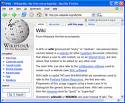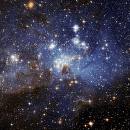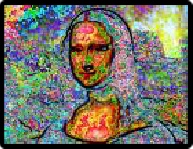
















NEXT
BACK
NEXT
BACK








Site Search
- Dennett, Daniel. Consciousness Explained. Little, Brown & Co. [“The prevailing wisdom, variously expressed and argued for is materialism : there is only one sort of stuff, namely matter . . . And the mind is somehow nothing but a physical phenomenon. In short, the mind is the brain.”] [“No part of the brain . . . could be where the buck stops, the ultimate source of moral responsibility at the beginning of the chain of command”]
- Deutsch, David. The Fabric of Reality : Viking, 1997. [“Our best theories are not only truer than common sense, they make more sense than common sense"]
- Freeman, Walter. How Brains Make Up Their Minds. Columbia University Press, 2000. [“. . . Meanings exist only in minds, not in objects . . . information is not meaning.”]
- Gene, Mike. The Design Matrix : A Consilience of Clues. Arbor Vitae, 2007. [Genetic “Codes suggest intelligent, rather than non-
intelligent origins”. ] - Giorbran, Gevin. Everything Forever : Learning to See Timelessness. Enchanted Puzzle Publishing, 2007. [“. . . our universe is in the process of merging with the timeless sum of all, with the infinite whole, with everything forever.”]
- Goldberg, Stephen. Anatomy of The Soul : Mind, God, and the Afterlife. MedMaster, Inc., 2009. [“In monistic materialism, there is no mind. . . denial of the very thing with which we are most familiar.”]
- Goswami, Amit. The Self-
Aware Universe : How Consciousness Creates the Material World. Penguin Putnam, 1993. [“Consciousness is a singular for which there is no plural”. ] - Greene, Brian. The Elegant Universe : Superstrings, Hidden Dimensions, and the Quest for the Ultimate Theory. Vintage, 1999. [“Maybe we will have to accept that certain features of the universe are the way they are because of happenstance, accident or divine choice.”]
- Gribbin, John. Deep Simplicity : Chaos, Complexity and Life. Random House, 2004. [“. . . a shift toward understanding how things work by building upward from simple things, instead of breaking things down into their components.]
- Haisch, Bernard. The God Theory : Universes, Zero-
Point Fields and What’s Behind It All . Weiser Books, 2006. [“To put it bluntly, some scientists are willing to ‘create’ a veritable infinite number of alternate universes to avoid admitting that consciousness plays a role in the operation of our universe.”] - Hofstadter, Douglas. I Am a Strange Loop. Basic Books, 2007. [“If there were ever, in our physics-
governed world, a kind of magic, it is surely in these self- ]reflecting, self- defining patterns. . . . Strange loops . . . give the only explanation I can fancy for how animate, desire- driven beings can arise from just plain matter . . .” - Johnson, George. Fire in the Mind : Science, Faith, and the Search for Order. Alfred A. Knopf, 1995. [comment: There seems to be an organizing principle in Nature that scientists take for granted, and theists take for god.]
- Johnson, Steven. Emergence : The Connected Lives of Ants, Brains, Cities, and Software. Scribner, 2001. [“ . . . how a complex organization could assemble itself without any master planner calling the shots.”] [Bottom-
up design ] - Lanza, Robert and Berman, Bob. Biocentrism : How Life and Consciousness Are the Keys to Understanding the True Nature of the Universe. BenBella Books, 2009. [“Instead of assuming a reality that predates life and even creates it, we propose a biocentric picture of reality. From this point of view, life–-
particularly consciousness–- ]creates the universe.” - Laughlin, Robert. A Different Universe : Reinventing Physics From the Bottom Down. Basic Books, 2005. [comment : How the universe organizes itself]
- Laszlo, Ervin. The Systems View of the World : A Holistic Vision for Our Time. Hampton Press, 1996. [“ The beginning of the twentieth century witnessed the breakdown of the mechanistic theory even within physics, the science where it was the most successful.”]
- Lederman, Leon. The God Particle : If the Universe is the Answer, What is the Question? Houghton Mifflin, 1993, 2006. [“. . . The void’s balance was so exquisite that only whim was needed to produce a change, a change that created the universe.”]


MENTAL SYNTHESIS
“Perception is organization of sensations, and the construction of meaning”.
“. . . Meaning is defined by a relation between symbols . . .”
“. . . Abstract concepts and generalizations are properties of minds, not of the world.”
“. . . Meanngs exist only in minds, not in objects . . Information is not meaning”.
—-
How Brains Make Up Their MInds
INTENTION
. . . Intentionality precedes consciousness, and the dichotomy between subject and object disappears. Action precedes perception.
—-
How Brains Make Up Their MInds
CAUSALITY
There is no need to justify the concepts of either free will or universal determinism, because they and their irresolvable antinomy now seem to the the logical consequences of mistaken beliefs about causality.
—-